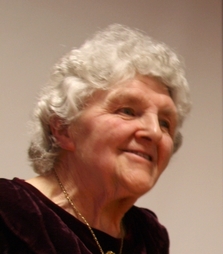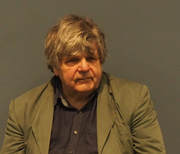 It’s tragic that there was has been no reference to Dorothy Heathcote in the National press since her recent death. On the other hand it comes as no surprise. Recognition, not for herself, but her ideas, was a battle she fought all her life. I’ve heard the intellectual traditionalists describe her as one of those soft liberals. It’s a mistake, she was first and foremost passionate about intellectual pursuit, I know very few who were so well read and had such a breath of knowledge, and she was also about children’s quest for knowledge. People respond to Dorothy’s work on a number of levels, for thousands of individuals it is inspiring and life changing; many educationalists, without a second glance dismiss it as wishy-washy and see no discernable connection between it and academic advancement; a great number are simply overwhelmed by the challenges it demands in teaching style and the reassessment of what ‘education’ really is. So her concept of education has generally been kept confined to the educational backburner. I say back burner rather than ‘bin’ as an indication of hope. She was ahead of her time but the traditionalist who imposes our current education system will eventually have to wake up to the changing needs of the 21st century encompassed in the common sense values she practiced. Great ideas are part of the evolutionary process and are frustratingly slow. It can take generations to move the most obvious idea into practice. Because so many people haven’t come across her work I thought it might be useful, just as a flavour, to explain one aspect of her of teaching practice. Dorothy was first and foremost practical. Her ideas are rooted in how we learn naturally through practical work and contact within the community of others. We can only truly want to learn something if we can see that there’s some practical use for it. If we know that learning a particular something is in any way relevant to us then we will, quite naturally, want to know more about it. Much of her work with drama is about putting children into imagined situations that demanded solutions to an immediate problem and then getting them to apply what they already know and research what they ‘need to know’ to solve that problem. Helping children to “discover”, rather than simply ‘telling’ is the key. Tell a child that red and yellow make orange, they are likely to forget it, but give them red and yellow to paint with so they discover orange, they will most certainly remember it. One of her tools for teaching she called ‘The Mantle of the Expert’. The Mantle of the Expert is a dramatic-inquiry approach to teaching and learning. The concept is to create an environment that allows the learners to do all their curriculum work as if they were a community of experts. They might be investigating archaeologists excavating a roman villa, or biologists in a laboratory. They might be architects planning a housing estate or doctors running a hospital. Whatever the theme or area of learning the children take on the behavior of ‘experts’ and as such work from a specific point of view as they explore their learning. Implicit in the work is the need for the children to take on special responsibilities, language needs and social behaviours of the expert. This is not about children performing a play, they are simply being asked to agree, for a short while, to imagine themselves as a group of scientists, explorers or whoever, with specific jobs and responsibilities. Through activities and tasks, the children gradually take on the same kinds of responsibilities, problems and challenges that real archaeologists or scientists might do in the real world. To use one of our own example, a group of schools asked Claque to create a role play around the subject of refugees and asylum seekers. We put the children in the role of police investigating a reported crime perpetrated against a reputed “refugee woman”. The woman herself had fled the scene and all we had as a frame of reference were the belongings she’d left behind. In teams the children sifted through the material in order to get some picture of who the woman was, and where she came from. They found, personal and official letters, photographs, maps, a diary and personal treasured objects. An essential part of the planning of these in role sessions is that information is on hand to be discovered. The woman was later found and brought before the children for questioning. Because of the children’s background knowledge of her they were able to focus their questions purposefully. As police they had to write a report about what they thought should happen to the woman and what our responsibilities were to her if any? They had to consider issues such as whether she qualified for asylum. This brought up other areas about her general welfare and the implications financially, culturally and socially. Their talk, investigation and interviewing developed as though they were police – their vocabulary and need for knowledge increased. To give children the Mantle of the Expert there always needs to be a task or enterprise (A factory to be run, a crime to be solved, a battle to be won, an escape plan to be executed) and there always needs to be a client who needs help with the task being done (The purchasers of factory goods, the patients in the hospital, the high command on board a ship). The emphasis is on what tasks the children need to do to serve the needs of the clients and make the enterprise a success. The process significantly changes the usual dynamic of education. As teachers we step back from the usual ‘teaching’ role of being the fount of all knowledge, ‘the one who tells’. And begin to share with the class the responsibility for the quality of work. ‘We’ together, run the enterprise and, as in real-life, it’s based in action and processes; thus it generates a range of different tasks: talking, listening, writing, speaking, making, designing, planning, measuring, weighing, etc. These tasks are channeled by the adult towards the requirements of the school curriculum. It brings together different areas of the curriculum, rather than trying to teach them separately, because, in practice life is not divided into subjects in the way schools seem to insist they are. Through the Mantle of the expert and the use of dramatic inquiry we can develop the skills, and acquire the knowledge demanded by any area of the school curriculum but put it into a context. Through drama we can see purpose in what we learn and put our knowledge, skills and ability to find out into to immediate use. Helping young people develop ownership over their enterprise is also extremely motivational. Children become passionate about their quest for knowledge when they recognize it has something to do with them. Not only that - because it is ‘drama’ based and involves the whole community of the classroom working together it develops co-operation, invention, adaptability, creativity, risk and empathy, qualities looked for among employers in the modern world. One Response to Mantle of the Expert Patrena Russell says: comment-author .vcard January 16, 2012 at 12:41 am .comment-meta .commentmetadata This is an interesting peace of in formation. I did not no anything about Dr. Dorothy Heathcote until last week when l was asked to write an essay on her. I am amazed at the wonderful things she has done and how she has influence many lives. I WISH TO KNOW MORE ABOUT HER.
0 Comments
Leave a Reply. |
DIRECTOR'S
|

 RSS Feed
RSS Feed